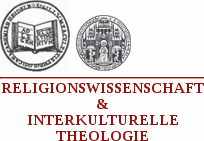Inaugural Workshop Tamil Studies Network
7.-8. Juni 2013, Centre for Modern Indian Studies, Göttingen
Anmeldung /Registration:
für Teilnahme /participation only: email to Ulrike Schröder (ulrike.schroeder@wts.uni-heidelberg.de)
für Vorträge /suggestions for papers: email to Rupa Viswanath (rviswan@gwdg.de) (please send title & abstract o paper) - DEADLINE 01.04.2013
Call for Papers (Full version)
Rituals of Community and Political Ritual: The Making and Remaking of a Tamil People
Tamils have a remarkably long history of imagining themselves as a
distinctive “community” with culturally and socially unique
traits. From the clear counterposition of cultured Tamil against
its dialectal variants as well as against Sanskrit that one finds
in the earliest Tamil grammar Tolkappiyam (c. 8th century CE), to
the heated linguistic policy debates of the 20th century and the
rise of Dravidian nationalism, Tamils across the centuries have,
in distinctive and historically specific ways, produced ideas of
what being a (proper) Tamil person means and what an (ideal) Tamil
society should look like.
For the first meeting of the network, we hope to examine some of
the practices and strategies used to create Tamil subjects, to
make what in modern democratic jargon is called “a people.” What
forms of moral, ethical and pedagogical work have been carried out
to produce a Tamil people? What routines and rituals—religious,
political, domestic, bodily, and so on—have been introduced to
faciltiate or in other ways accompany these processes? What
different forms have practices of people-making taken in different
sub-regional milieux and under different political-religious
regimes? We invite papers from historians, anthropologists,
political scientists, Indologists, scholars of religion and others
whose empirical research pertains to these broad thematic
concerns.
Topics that might be addressed include, but are not
limited too:
- Rituals and sovereignty
- Violence and community
- Gender regimes and Tamilness
- Populism as politics in the postcolonial Tamil world
- Religion and/as Tamilness
- Elite and subaltern Tamils
- Conceptions of caste and castelessness in Tamil society
- “Othering” in Tamil social worlds

